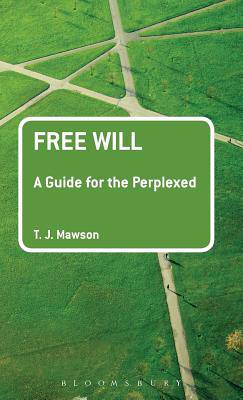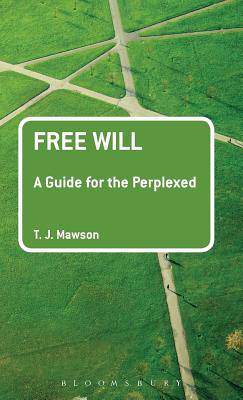
- Afhalen na 1 uur in een winkel met voorraad
- Gratis thuislevering in België vanaf € 30
- Ruim aanbod met 7 miljoen producten
- Afhalen na 1 uur in een winkel met voorraad
- Gratis thuislevering in België vanaf € 30
- Ruim aanbod met 7 miljoen producten
Zoeken
€ 220,45
+ 440 punten
Omschrijving
In everyday life, we often suppose ourselves to be free to choose between several courses of action. But if we examine further, we find that this view seems to rest on metaphysical and meta-ethical presuppositions almost all of which look problematic.
How can we be free if everything is determined by factors beyond our control, stretching back in time to the Big Bang and the laws of nature operating then? The only alternative to determinism is indeterminism, but is not indeterminism just there being a certain amount of randomness in the world? Does not randomness hinder you from being the author of your actions?
Free Will: A Guide for the Perplexed looks at how much of the structure of our everyday judgments can survive the arguments behind such questions and thoughts. In doing so, it explores the alternative arguments that have been advanced concerning free will and related notions, including an up-to-date overview of the contemporary debates. In essence, the book seeks to understand and answer the age-old question, 'What is free will and do we have it?'
How can we be free if everything is determined by factors beyond our control, stretching back in time to the Big Bang and the laws of nature operating then? The only alternative to determinism is indeterminism, but is not indeterminism just there being a certain amount of randomness in the world? Does not randomness hinder you from being the author of your actions?
Free Will: A Guide for the Perplexed looks at how much of the structure of our everyday judgments can survive the arguments behind such questions and thoughts. In doing so, it explores the alternative arguments that have been advanced concerning free will and related notions, including an up-to-date overview of the contemporary debates. In essence, the book seeks to understand and answer the age-old question, 'What is free will and do we have it?'
Specificaties
Betrokkenen
- Auteur(s):
- Uitgeverij:
Inhoud
- Aantal bladzijden:
- 208
- Taal:
- Engels
- Reeks:
Eigenschappen
- Productcode (EAN):
- 9781441196231
- Verschijningsdatum:
- 20/01/2011
- Uitvoering:
- Hardcover
- Formaat:
- Genaaid
- Afmetingen:
- 140 mm x 216 mm
- Gewicht:
- 362 g

Alleen bij Standaard Boekhandel
+ 440 punten op je klantenkaart van Standaard Boekhandel
Beoordelingen
We publiceren alleen reviews die voldoen aan de voorwaarden voor reviews. Bekijk onze voorwaarden voor reviews.








